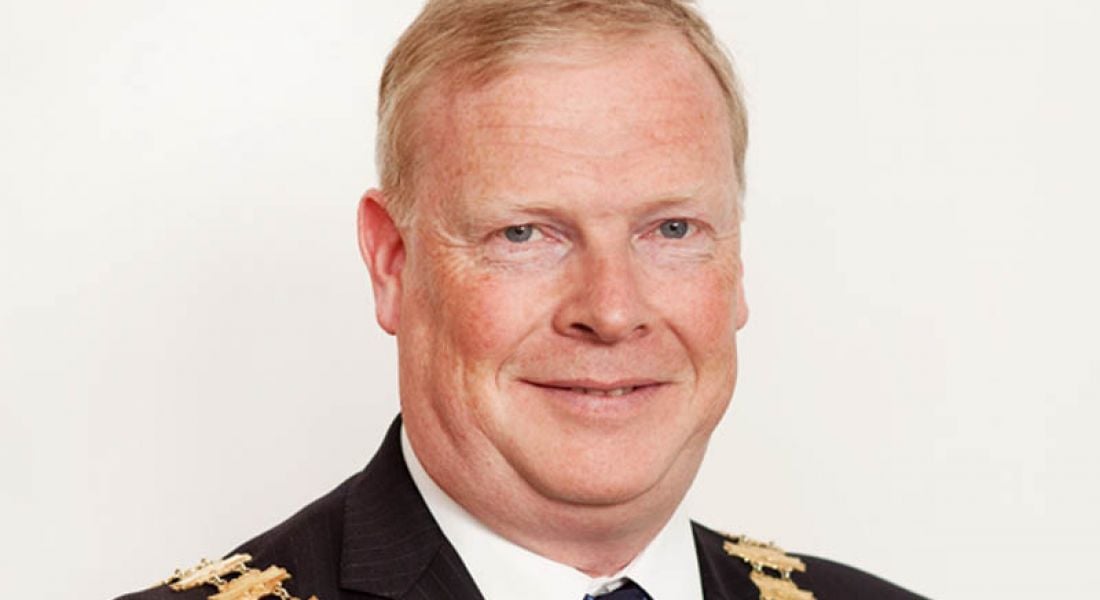The health of Ireland’s medical devices export sector, which is worth in the region of €7.9bn, will remain hugely dependent on the expertise and ready supply of skilled engineers, said John O’Dea, the new president of Engineers Ireland.
O’Dea, CEO of the Irish medical-device developer Crospon, was elected president of the engineers-representative body in mid-June. He received the chain of office at the Engineers Ireland AGM on 13 June from outgoing president Michael Phillips.
O’Dea recently gave his first address to engineers in Dublin, where he highlighted the importance of Ireland’s medical devices export sector.
He said the recent disappointing Central Statistics Office (CSO) data highlighted how dependent the Irish economy is on its export sector and how engineering remains a critical driver in this regard.
O’Dea indicated that a central theme of his presidency of Engineers Ireland will be to highlight the engineers’ role in contributing to the “betterment” of health in society.
“Engineers play a vital role in working with physicians to develop and mature ideas into commercial reality,” he said.
Fusion of med-tech innovation with engineering talent
As well as the well-documented presence of more than half of the top 25 of the world’s multinational medical-device companies in Ireland, who all employ engineers, O’Dea spoke about the emerging medical device engineering start-ups that are coming onto the Irish entrepreneurial scene.
He said such med-tech start-ups are innovating in a variety of areas, such as stroke management, cancer treatment, orthopaedics and surgery all across the country.
“As an engineer working in this sector, one can potentially affect the lives of many more patients than one could ever hope to encounter as a physician in medical practice.
“This is a critical sector employing 26,000 people and a key pillar of Ireland’s economy,” said O’Dea.
Irish Medical Devices Association
As well as being the new president of Engineers Ireland, which represents more than 23,000 engineers, O’Dea is also chairman of the Irish Medical Devices Association.
In this respect, O’Dea also spoke about what he termed the “growing value” of the various titles of engineer and the increasing importance of continuing professional development (CPD) in the profession.
“Mandatory CPD to become a chartered engineer and greater regulation of the profession will support excellence and standards within the industry,” said O’Dea.
One important aspect of the revision of the EU Medical Devices Directive, he said, will be the requirement for a ‘qualified person’ in every medical device manufacturing facility, a requirement that already exists within the pharmaceutical sector.
“Subject to approval of amendments to the directive proposed by Engineers Ireland, the new directive could potentially see the title of chartered engineer lead to automatic presumed compliance with the requirement for a ‘qualified person’,” he added.
O’Dea’s bio in med-tech innovation
With 22 years of experience in the medical device industry, O’Dea has overseen the successful launch of eight electronic medical-device products in the past 14 years.
He co-founded Caradyne, an Irish respiratory medical device company in 1998, which was selling products in 30 countries prior to its acquisition by Respironics Inc in 2004.
Over the past 20 years, he has held R&D management positions in Nellcor Puritan Bennett and engineering positions in Digital Equipment Inc and in Dataproducts Inc.
Prior to setting up Crospon in Galway in 2006, O’Dea served as general manager of Respironics Ireland. He is a named author on eight issued US patent families.
Last August, for example, Siliconrepublic.com reported on how Crospon had been cleared by the Food and Drug Administration (FDA) to market its EndoFLIP imaging system in the US for gastroenterology applications.
And as recently as this past June, Crospon was chosen, along Adama Innovations, a new spin-out from the Irish nanoscience institute CRANN, to take part in a European Commission-led project called FaBiMed. The aim of the project, which will see Crospon and Adama Innovation together receive almost €600,000 in funding, will be to improve and develop new manufacturing techniques for medical devices.
On the academic side of things, O’Dea is also adjunct professor at the School of Engineering and Informatics at NUI Galway. At this university he is also chairman of the External Advisory Board for the Irish Regenerative Medicine Institute (REMEDI).
He holds a bachelor’s degree and master’s degree in mechanical engineering and a PhD in electronics engineering all from University College Dublin UCD). O’Dea also has an MSc in clinical research from NUI Galway.




